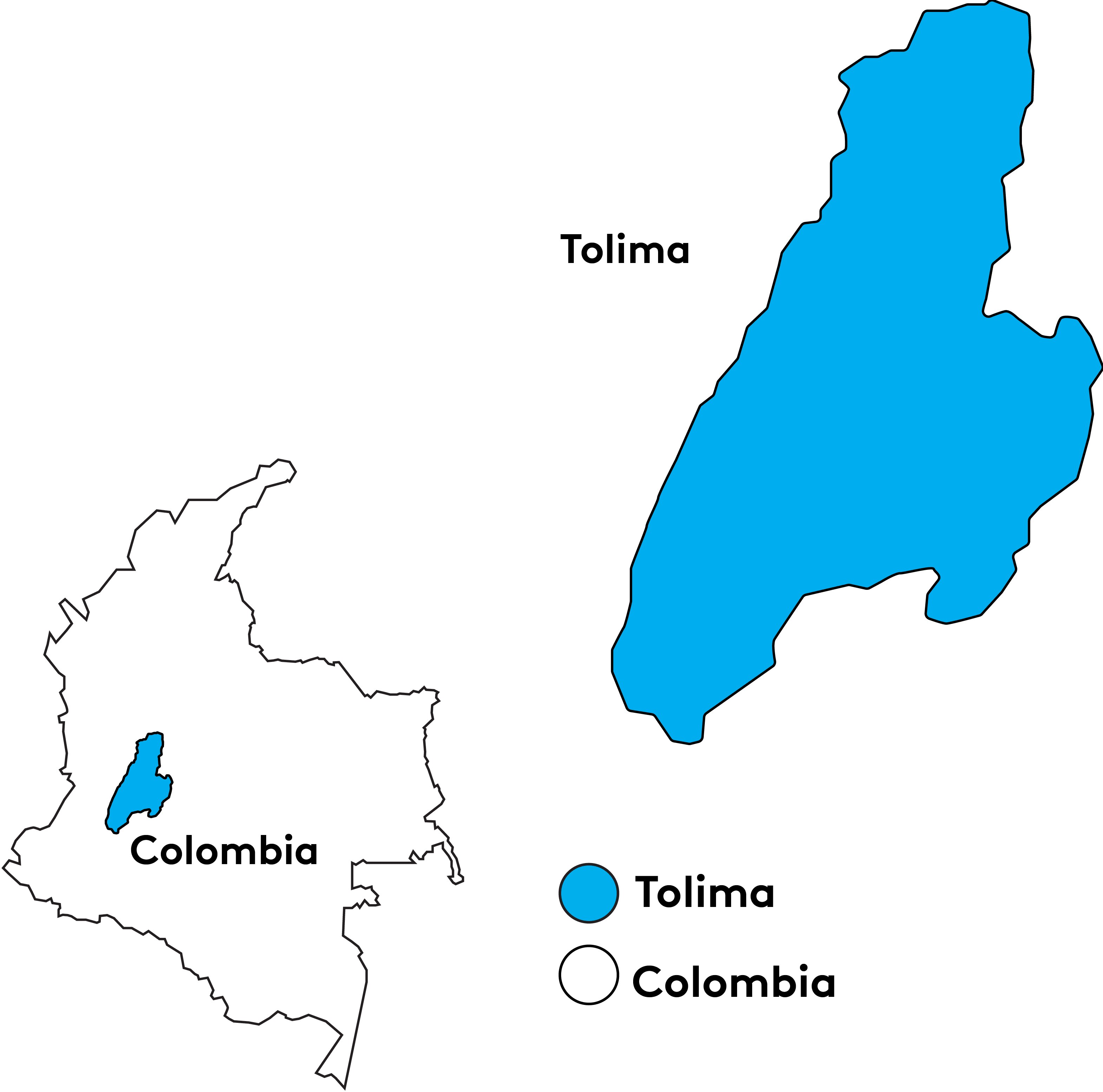Region
Tolima
The Colombian Department of Tolima is nested in the heart of Andean region in the center-west of the country. The department ranks first in Colombia in the production of rice and sesame. Farmers here also grow coffee, corn, bananas, sugarcane, and beans. Livestock, particularly cattle and pigs, is quite common in the northwest and center-east valleys along the Magdalena River and its basins. 32 of Tolima’s 47 municipalities are dedicated to coffee production.
Tolima’s capital city of Ibagué, also known as “Musical capital of Colombia and America” is surrounded by the mountains and enriched with water resources stretching along the Magdalena River Valley to the east of the Department. Tolima is traversed by highways and railroads, linking Ibagué with Bogotá, Armenia (Quindio), and Neiva (Huila).
The geographical location, topographic diversity, and range of altitudes make Tolima one of the most favorable and unique departments for coffee production, allowing for harvesting throughout the year. Coffee farms are scattered on the mountain ranges of Santa Marta, La Macarena, and the western slopes of the eastern Cordilleras. Farms here are predominantly smallholder owned, and the farmers have made concerted efforts in the last ten years to produce specialty coffee that reveals the full character of the region’s terroir. The organic approach to coffee cultivation in Tolima is well-known and highly demanded around the world. Certifications like Fairtrade, Organic, Rainforest Alliance, UTZ, and Bird Friendly can be found throughout the region. Selective manual harvesting, attentive processing, and careful post-harvest sorting all contribute to the growing recognition of Tolima as a coffee producing region.
Tolima’s coffee sector has attracted numerous financial and educational resources over the past several years. State and private owned organizations have invested with social and economic programs throughout the region, strengthening the potential for sustainable coffee production and improving the livelihoods of thousands of families.
